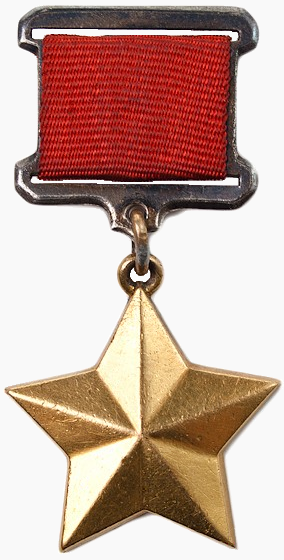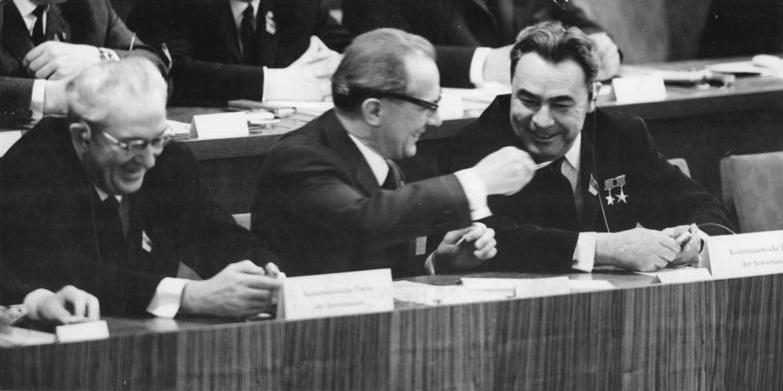|
27th Congress Of The Communist Party Of The Soviet Union
The 27th Congress of the Communist Party of the Soviet Union was held from 25 February to 6 March 1986 in Moscow. This was the first congress presided over by Mikhail Gorbachev as General Secretary of the Central Committee of the CPSU. In accordance with the pattern set 20 years earlier by Leonid Brezhnev, the congress occurred five years after the previous CPSU Congress. Much had changed in those five years. Key figures of Soviet politics, Mikhail Suslov, Leonid Brezhnev, Yuri Andropov, Dmitriy Ustinov, and Konstantin Chernenko had died, and Mikhail Gorbachev had become General Secretary of the Party. For this reason the congress was widely anticipated, both at home and abroad, as an indicator of Gorbachev's new policies and directions. The congress was attended by 4993 delegates. It elected the 27th Central Committee. The agenda of the congress: * CC CPSU Report and the Party objectives (Given by Mikhail Gorbachev) * New Party Statute release * Political report of CC CPSU ... [...More Info...] [...Related Items...] OR: [Wikipedia] [Google] [Baidu] |
RIAN Archive 770913 The Final Speech Of The General Secretary Of The CPSU Central Committee M
RIA Novosti (russian: РИА Новости), sometimes referred to as RIAN () or RIA (russian: РИА, label=none) is a Russian State media, state-owned domestic news agency. On 9 December 2013 by a decree of Vladimir Putin it was liquidated and its assets and workforce were transferred to the newly created Rossiya Segodnya agency. On 8 April 2014 RIA Novosti was registered as part of the new agency. RIA Novosti is headquartered in Moscow. The chief editor is Anna Gavrilova. Content RIA Novosti was scheduled to be closed down in 2014; starting in March 2014, staff were informed that they had the option of transferring their contracts to Rossiya Segodnya or sign a Voluntary redundancy, redundancy contract. On 10 November 2014, Rossiya Segodnya launched the Sputnik (news agency), Sputnik multimedia platform as the international replacement of RIA Novosti and Voice of Russia. Within Russia itself, however, Rossiya Segodnya continues to operate its Russian language news service ... [...More Info...] [...Related Items...] OR: [Wikipedia] [Google] [Baidu] |
Konstantin Chernenko
Konstantin Ustinovich Chernenko uk, Костянтин Устинович Черненко, translit=Kostiantyn Ustynovych Chernenko (24 September 1911 – 10 March 1985) was a Soviet politician and the seventh General Secretary of the Communist Party of the Soviet Union. He briefly led the Soviet Union from 13 February 1984 until his death on 10 March 1985. Born to a poor family from Siberia, Chernenko joined the Komsomol (the Communist Party's youth league) in 1929 and became a full member of the party in 1931. After holding a series of propaganda posts, in 1948 he became the head of the propaganda department in Moldavia, serving under Leonid Brezhnev. After Brezhnev took over as First Secretary of the CPSU in 1964, Chernenko rose to head the General Department of the Central Committee, responsible for setting the agenda for the Politburo and drafting Central Committee decrees. In 1971 Chernenko became a full member of the Central Committee, and in 1978 he was made a full ... [...More Info...] [...Related Items...] OR: [Wikipedia] [Google] [Baidu] |
1986 Conferences
The year 1986 was designated as the International Year of Peace by the United Nations. Events January * January 1 **Aruba gains increased autonomy from the Netherlands by separating from the Netherlands Antilles. **Spain and Portugal enter the European Community, which becomes the European Union in 1993. *January 11 – The Sir Leo Hielscher Bridges, Gateway Bridge in Brisbane, Australia, at this time the world's longest prestressed concrete free-cantilever bridge, is opened. *January 13–January 24, 24 – South Yemen Civil War. *January 20 – The United Kingdom and France announce plans to construct the Channel Tunnel. *January 24 – The Voyager 2 space probe makes its first encounter with Uranus. *January 25 – Yoweri Museveni's National Resistance Army Rebel group takes over Uganda after leading a five-year guerrilla war in which up to half a million people are believed to have been killed. They will later use January 26 as the official date to avoid a coincidence of ... [...More Info...] [...Related Items...] OR: [Wikipedia] [Google] [Baidu] |
Perestroika
''Perestroika'' (; russian: links=no, перестройка, p=pʲɪrʲɪˈstrojkə, a=ru-perestroika.ogg) was a political movement for reform within the Communist Party of the Soviet Union (CPSU) during the late 1980s widely associated with CPSU general secretary Mikhail Gorbachev and his glasnost (meaning "openness") policy reform. The literal meaning of perestroika is "reconstruction", referring to the restructuring of the Soviet political and economic system, in an attempt to end the Era of Stagnation. Perestroika allowed more independent actions from various ministries and introduced many market-like reforms. The alleged goal of perestroika, however, was not to end the command economy but rather to make socialism work more efficiently to better meet the needs of Soviet citizens by adopting elements of liberal economics. The process of implementing perestroika added to existing shortages, and created political, social, and economic tensions within the Soviet Union. Fu ... [...More Info...] [...Related Items...] OR: [Wikipedia] [Google] [Baidu] |
Congresses Of The Communist Party Of The Soviet Union
The Congress of the Communist Party of the Soviet Union (russian: съезд КПСС) was the supreme decision-making body of the Communist Party of the Soviet Union. Its meetings served as convention of all party delegates and their predecessors. Between the congresses the party was ruled by the Central Committee. Over the course of the party's history, the name was changed in accordance with the current name of the party at the time. The frequency of party congresses varied with the meetings being annual events in the 1920s while no congress was held at all between 1939 and 1952. After the death of Joseph Stalin, the congresses were held every five years. Keys Convocations See also * Organization of the Communist Party of the Soviet Union The organization of the Communist Party of the Soviet Union was based on the principles of democratic centralism. The governing body of the Communist Party of the Soviet Union (CPSU) was the Party Congress, which initially met ann ... [...More Info...] [...Related Items...] OR: [Wikipedia] [Google] [Baidu] |
1986 In The Soviet Union
The following lists events that happened during 1986 in the Union of Soviet Socialist Republics. Incumbents *General Secretary of the Communist Party of the Soviet Union – Mikhail Gorbachev *Chairman of the Presidium of the Supreme Soviet – Andrei Gromyko *Premier of the Soviet Union – Nikolai Ryzhkov *Chairman of the Supreme Court of the Soviet Union – Vladimir Terebilov Events January *25 January – Mikhail Gorbachev proposes a 15-year plan on abolition of nuclear weapons. February *20 February – The first component of the Mir space station - the core module - is launched. *24 February – VI Winter Spartakiad of the Peoples of the USSR opens in Krasnoyarsk. *25 February – The 27th Congress of the Communist Party of the Soviet Union is opened, where the concept of ''glasnost'' emerges. March *1 March – 1986 Soviet Top League is inaugurated. *13 March **Soyuz T-15 is launched at the Gagarin's Start. ** 1986 Black Sea incident: American cruiser USS ''Yorkto ... [...More Info...] [...Related Items...] OR: [Wikipedia] [Google] [Baidu] |
Nikolai Ryzhkov
Nikolai Ivanovich Ryzhkov ( uk, Микола Іванович Рижков; russian: Николай Иванович Рыжков; born 28 September 1929) is a Soviet, and later Russian, politician. He served as the last Chairman of the Council of Ministers (the post was abolished and replaced by that of Prime Minister in 1991). Responsible for the cultural and economic administration of the Soviet Union during the Gorbachev Era, Ryzhkov was succeeded as premier by Valentin Pavlov in 1991. The same year, he lost his seat on the Presidential Council, going on to become Boris Yeltsin's leading opponent in the Russian Soviet Federative Socialist Republic (RSFSR) 1991 presidential election. Ryzhkov was born in the city of Shcherbynivka, Ukrainian SSR (now Toretsk, Ukraine) in 1929. After graduating in the 1950s he started work in the 1970s and began his political career in local industry, working his way up through the hierarchy of Soviet industrial ministries. In 1979 Ryzhkov w ... [...More Info...] [...Related Items...] OR: [Wikipedia] [Google] [Baidu] |
History Of The Communist Party Of The Soviet Union
The history of the Communist Party of the Soviet Union was generally perceived as covering that of the Bolshevik faction of the Russian Social Democratic Labour Party from which it evolved. The date 1912 is often identified as the time of the formation of the Communist Party of the Soviet Union as a distinct party, and its history since then can roughly be divided into the following periods: * the early years of the Bolshevik Party in secrecy and exile * the period of the October Revolution of 1917 * consolidation of the party as the governing force of the Soviet Union * the Great Purge of the 1930s * the Khrushchev and Brezhnev periods (1953–1982) * the Gorbachev era of reform (1985–1991), which eventually led to the break-up of the party in 1991. The history of the regional and republican branches of the party does however differ from the all-Russian and all-Union party on several points. Nomenclature With its lineal predecessors and soi-disant heirs, the party used vari ... [...More Info...] [...Related Items...] OR: [Wikipedia] [Google] [Baidu] |
27th Central Committee Of The Communist Party Of The Soviet Union
The Central Committee of the 27th Congress of the Communist Party of the Soviet Union was in session from 1986 until 1990. Its 1st Plenary Session elected the Politburo, the Secretariat and the Party Control Committee of the 27th Congress of the Communist Party of the Soviet Union. History Election and composition The 27th Congress witnessed the greatest turnover of Central Committee members in the party's history since 22nd Party Congress (held in 1961) during Nikita Khrushchev's leadership. The numbers of full membership were reduced from 319 in the 26th Central Committee to 307, while candidate membership was increased from 151 to 170. Of the 307 full members elected to the 27th Central Committee, 102 (making up 33 percent of membership) were newcomers. 25 officials, who had previously served as candidate members in the 26th Central Committee, were promoted to full membership. In total 125 new full members were appointed, making up 41 percent. 182 members (59 percent) were ree ... [...More Info...] [...Related Items...] OR: [Wikipedia] [Google] [Baidu] |
Dmitriy Ustinov
Dmitriy Fyodorovich Ustinov (russian: Дмитрий Фёдорович Устинов; 30 October 1908 – 20 December 1984) was a Marshal of the Soviet Union and Soviet politician during the Cold War. He served as a Central Committee secretary in charge of the Soviet military–industrial complex from 1965 to 1976 and as Minister of Defence of the Soviet Union from 1976 until his death in 1984. Ustinov was born in the city of Samara to a Russian working-class family in 1908. Upon reaching adulthood, he joined the Communist Party in 1927 before pursuing a career in engineering. After graduating from the Institute of Military Mechanical Engineering in 1934, he became a construction engineer at the Leningrad Artillery Marine Research Institute. By 1937, he transferred to the Bolshevik "Arms" Factory where he ultimately rose to become the director. While serving as People's Commissar of Armaments during World War II, he achieved distinction within the party's ranks by succ ... [...More Info...] [...Related Items...] OR: [Wikipedia] [Google] [Baidu] |
Communist Party Of The Soviet Union
"Hymn of the Bolshevik Party" , headquarters = 4 Staraya Square, Moscow , general_secretary = Vladimir Lenin (first) Mikhail Gorbachev (last) , founded = , banned = , founder = Vladimir Lenin , newspaper = ''Pravda'' , position = Far-left , international = , religion = State Atheism , predecessor = Bolshevik faction of the RSDLP , successor = UCP–CPSU , youth_wing = Little Octobrists Komsomol , wing1 = Young Pioneers , wing1_title = Pioneer wing , affiliation1_title = , affiliation1 = Bloc of Communists and Non-Partisans (1936–1991) , membership = 19,487,822 (early 1989 ) , ideology = , colours = Red , country = the Soviet Union The Communist Party of the Soviet Union (CPSU),; abbreviated in Russian as or also known by various other names during its history, was the founding and ruling party of the Soviet Union. Th ... [...More Info...] [...Related Items...] OR: [Wikipedia] [Google] [Baidu] |
Yuri Andropov
Yuri Vladimirovich Andropov (– 9 February 1984) was the sixth paramount leader of the Soviet Union and the fourth General Secretary of the Communist Party of the Soviet Union. After Leonid Brezhnev's 18-year rule, Andropov served in the post from November 1982 until his death in February 1984. Earlier in his career, Andropov served as the Soviet ambassador to Hungary from 1954 to 1957, during which time he was involved in the suppression of the 1956 Hungarian Uprising. He was named chairman of the KGB on 10 May 1967. In this position, he oversaw a massive crackdown on dissent carried out via mass arrests and involuntary psychiatric commitment of people deemed "socially undesirable". After Brezhnev suffered a stroke in 1975 that impaired his ability to govern, Andropov effectively dominated policy-making alongside Foreign Minister Andrei Gromyko, Defense Minister Andrei Grechko and Grechko's successor, Marshal Dmitry Ustinov, for the rest of Brezhnev's rule. Upon Brezhnev ... [...More Info...] [...Related Items...] OR: [Wikipedia] [Google] [Baidu] |
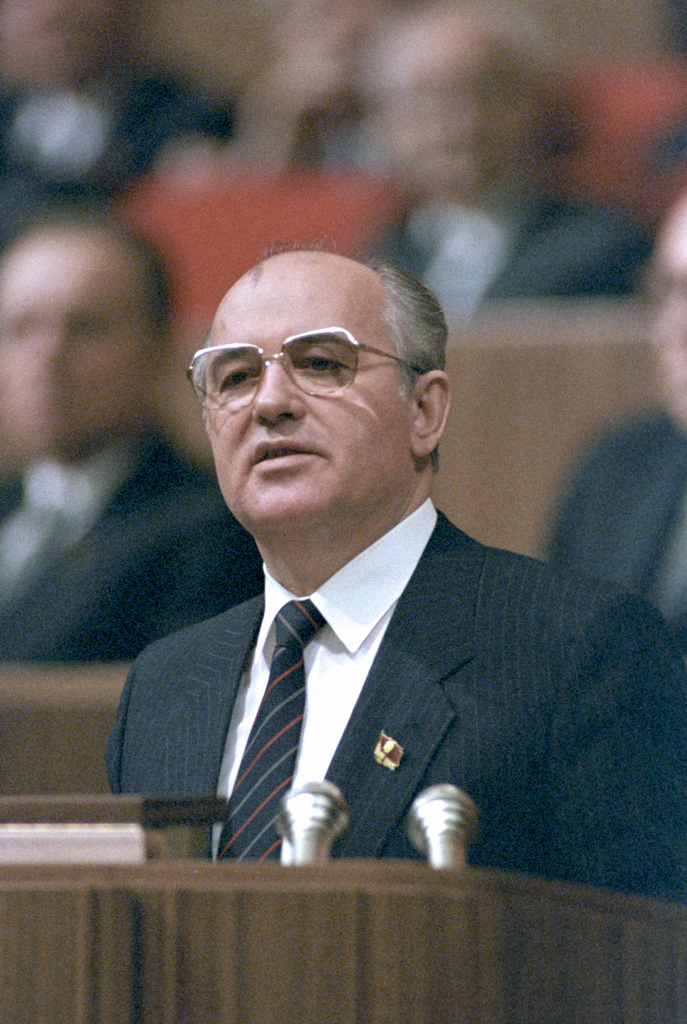
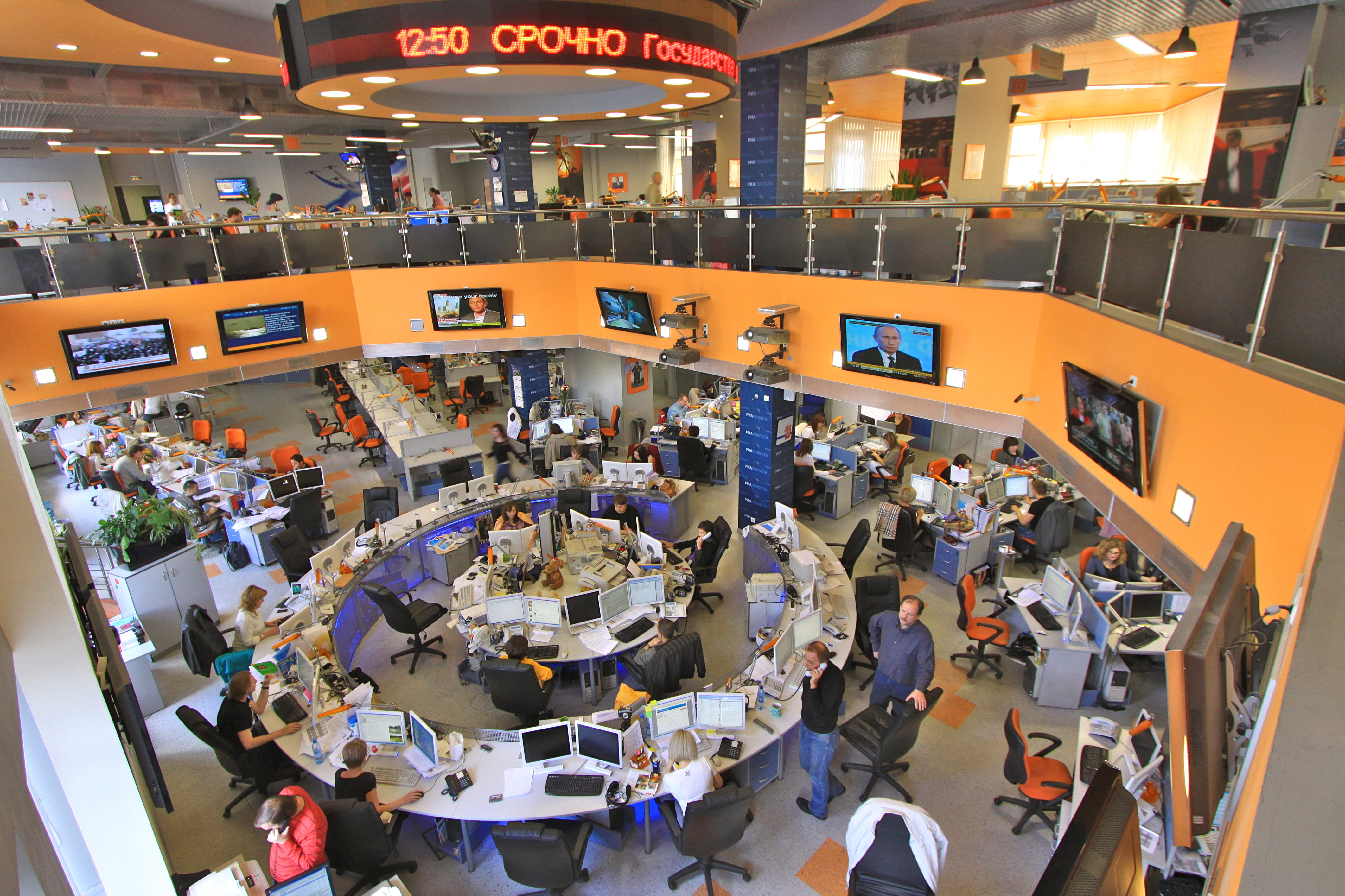



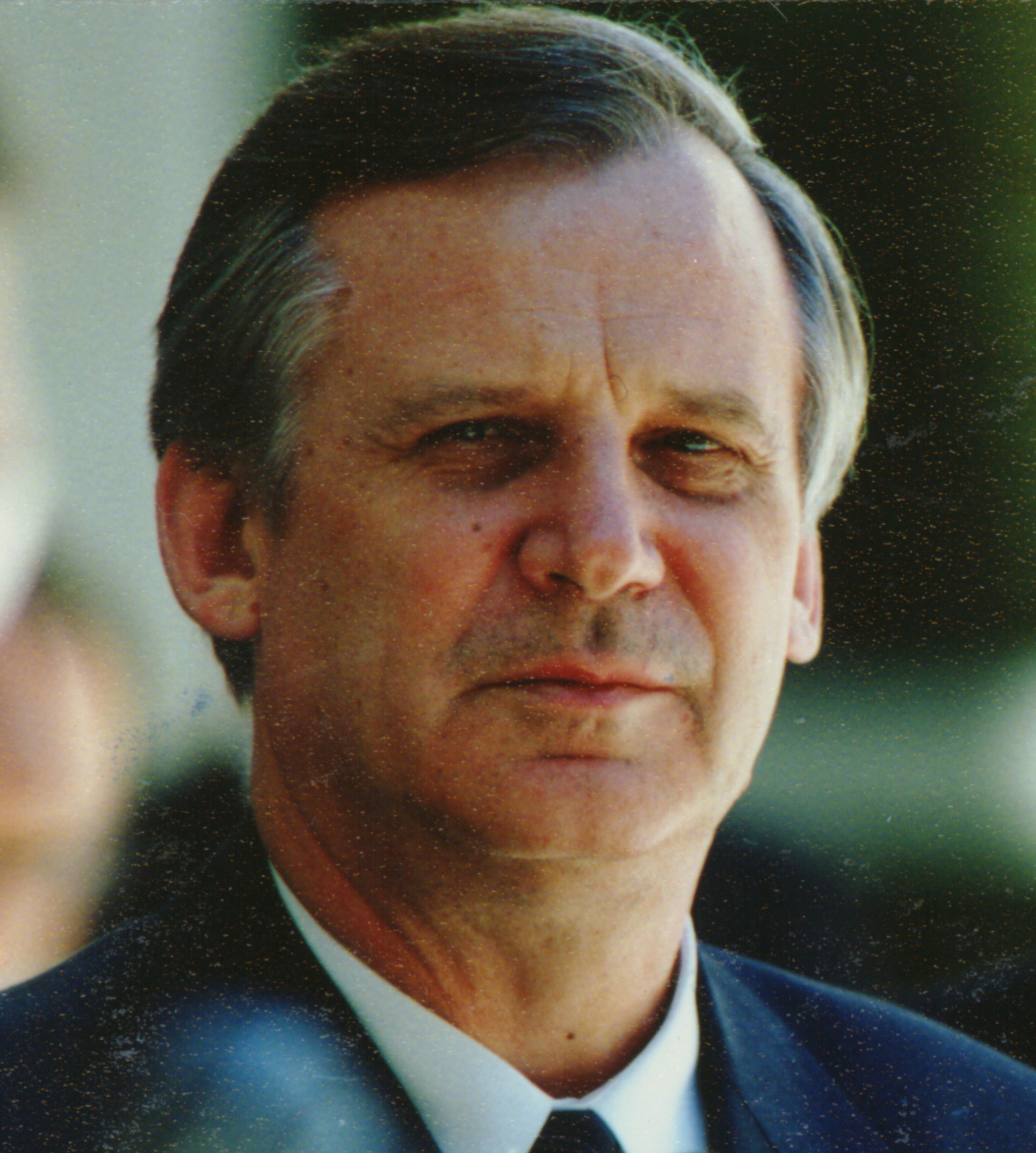
.jpg)
